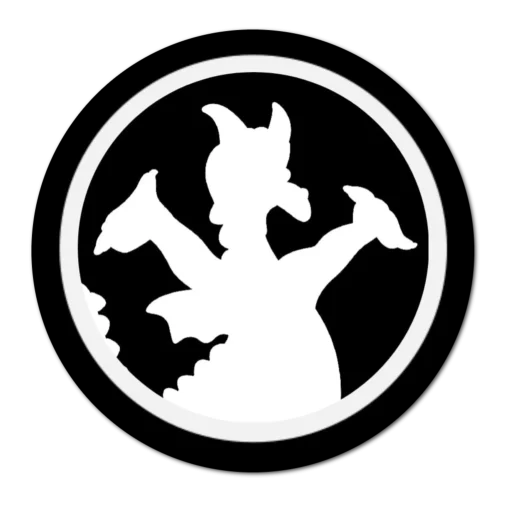At fifty years young, Walt Disney World has presented guests with unforgettable experiences since October 1, 1971. Over this time, the resort has grown and expanded as a world class destination, including four theme parks, two water parks, thirty-some-odd hotels, and countless shopping and dining options. But over the course of the past fifty years, there have been some favorite experiences that have been closed, cancelled, and often replaced. In Disney’s quest to continue providing current, relevant guest experiences, it is inevitable that some favorite attractions will eventually see the chopping block.
Please join us as we embark on a journey through some of Walt Disney World’s most missed attractions. We’ll start with a big one. In fact, maybe the biggest of all – Mr. Toad’s Wild Ride. How can one have a multi-part discussion on the former attractions of Walt Disney World without opening with the attraction that set the standard for Disney parks reminiscing?
J. Thaddeus Toad, Esq., an “Incurable Adventurer”
The original dark ride attraction opened in Disneyland in 1955, inspired by Disney’s 1949 animated film The Wind In the Willows. The film was part of a double-feature package film called The Adventures of Ichabod and Mr. Toad, which also featured the Halloween classic The Legend of Sleepy Hollow.
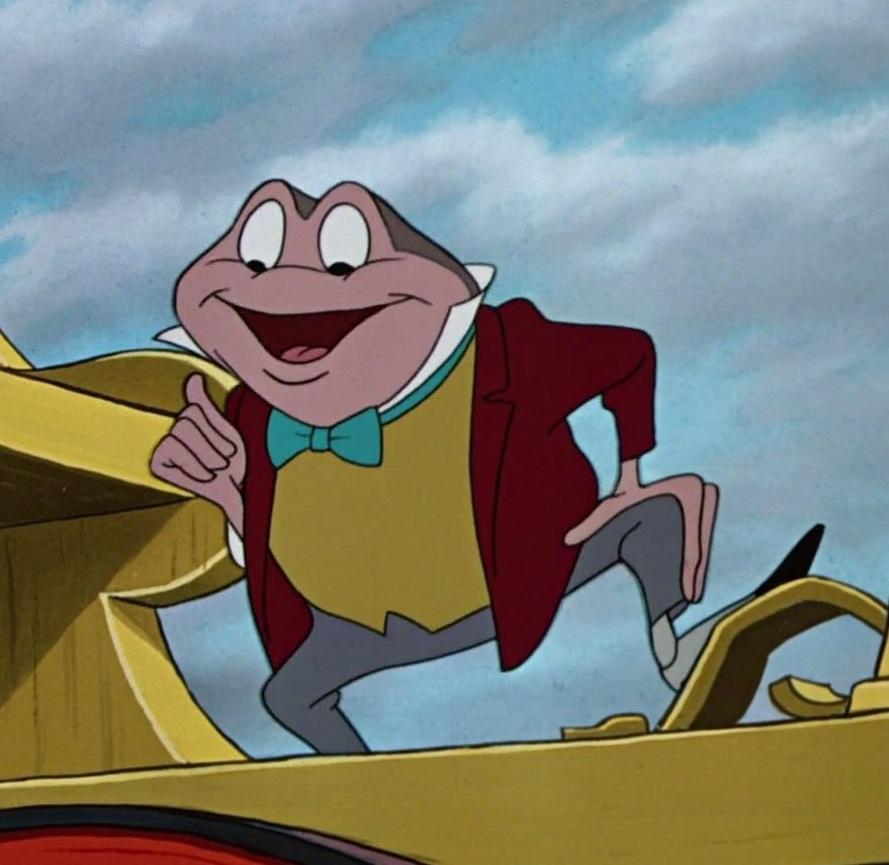
Guests of Disneyland’s opening day attraction enter the experience through the front door of Toad Hall – Mr. Toad’s lavish estate. Once inside Toad Hall, guests board a 1900s-era roadster. The ride starts off with a bang – crashing through the wall of Toad’s mansion, through the British countryside, passing quaint rural villages, eventually ending up in London. While in London, guests find themselves making a narrow escape from a warehouse, outlasting a chase by the police and enduring a near miss (or was it?) with a train. The final scene of the attraction lands guests in hell. Literally. How’s that for a Fantasyland ride?
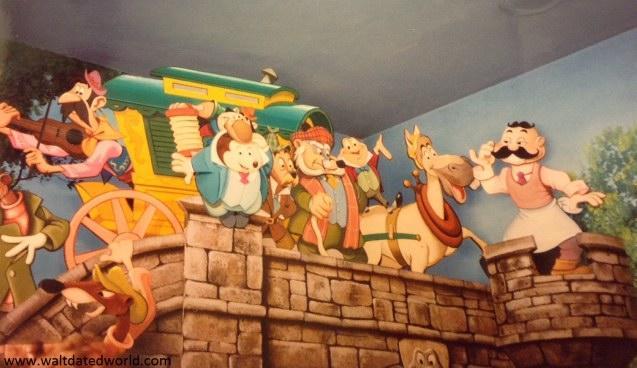
Mr. Toad was not your typical dark ride. What those roadster cars lacked in speed, they made up for with distinct madcap mobility. Guests might wonder where Mr. Toad ever learned to drive, enduring a steady stream of tight turns, near-misses, and even a couple collisions (simulated, of course).
On To Magic Kingdom
Mr. Toad’s Wild Ride had become a fan favorite in Disneyland. When WDW’s Magic Kingdom opened in 1971, it was filled with a combination of new attractions and proven favorites from the west coast. Mr. J. Thaddeus Toad and his friends made their way over to Florida, and come opening day they were taking guests of all ages on a journey to “nowhere in particular.”
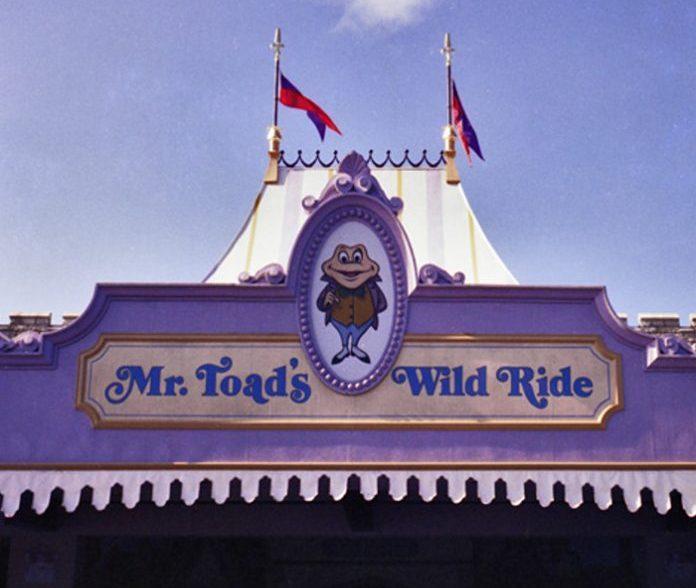
Very few Disney attractions are replicated to be EXACTLY like the original versions. Mr. Toad’s Wild Ride in Magic Kingdom was similar to the Disneyland version. But the larger size of Magic Kingdom allowed Imagineers to make the attraction larger. Guests were now able to enjoy additional scenes – one of which featured Winky and the famous weasels (who also made a memorable appearance in Who Framed Roger Rabbit). Artists for the Magic Kingdom version also spent more time making the sets and characters three-dimensional, instead of the flat plywood cutout-type characters from the Disneyland version.

But the single biggest enhancement over the Disneyland version was the installation of a second vehicle track. With two tracks winding through the attraction, the throughput of guests was essentially doubled. Even better, the second track provided guests with a completely different ride experience from the original track.
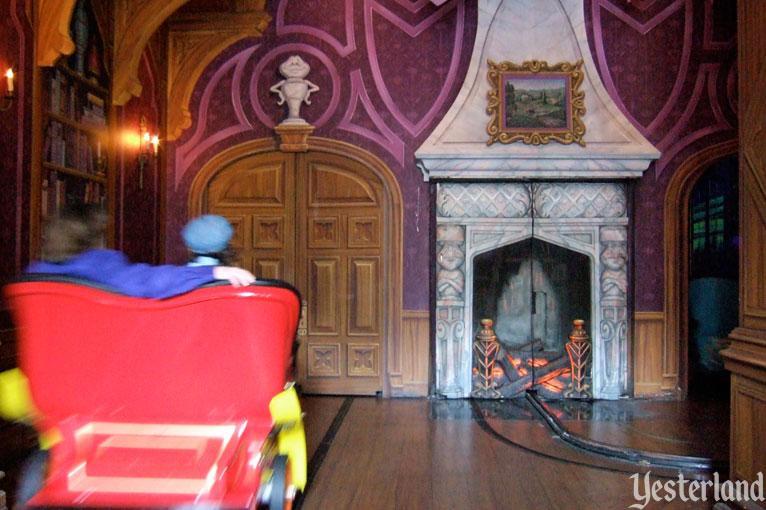
And the icing on the cake? At several moments in the ride, the two vehicle tracks converged in what looked to be a head-on collision course. In those moments when two cars left their boarding areas at about the same time, guests might experience a near-miss with another roadster, which certainly intensified the experience. At the end of the ride, guests from both journeys still ended up in hell, but what a ride it was!
The Winds of Change
The mid-1980s through the mid-1990s are often referred to as the “Disney Decade” or the “Disney Renaissance.” CEO Michael Eisner led the company on a boom in both film and theme park growth.

A lagging animation program jumpstarted itself with blockbuster films including The Little Mermaid, Beauty and the Beast, and The Lion King, among others.
On the theme park side, 1989 saw the opening of Disney-MGM Studios, and Splash Mountain started soaking guests in 1992.
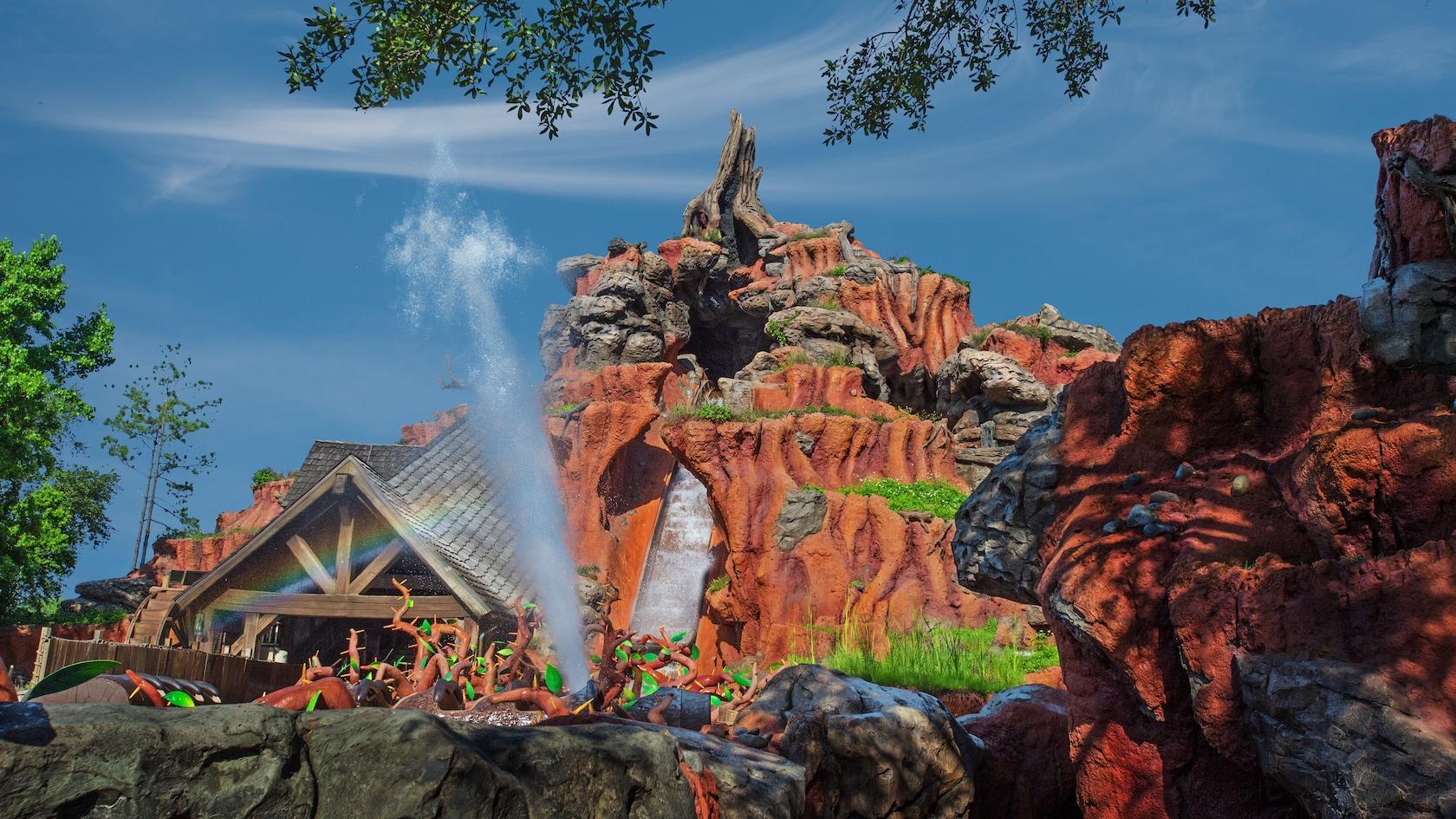
Yet conversely, during this same period, Disney parks overall were going through a period of budget cuts and streamlining. Attractions considered outdated or too expensive to maintain were removed or replaced with new rides intended to be more relevant and marketable.
Mr. Toad was given an upgrade to four-passenger cars in 1993, boosting ride’s throughput capacity. But otherwise, Mr. Toad as a character and franchise had remained quite static over the previous two decades, and his popularity outside the parks waned significantly.
Mr. Toad Gets the Boot
Disney acquired the rights to a certain “Silly Old Bear” in the 1960s. Since then, Winnie-the-Pooh and friends were steadily gaining in popularity through the 1980s and into the 1990s, and Disney was looking for a way to incorporate them into the parks.

Well, you can see where this is going. In 1997, Disney released a statement that they were considering replacing Mr. Toad’s Wild Ride with a Winnie the Pooh-themed attraction at Magic Kingdom. While Disney’s statement was lacking in details, it still sparked a frenzy in Mr. Toad fans across Florida, and even nationwide.
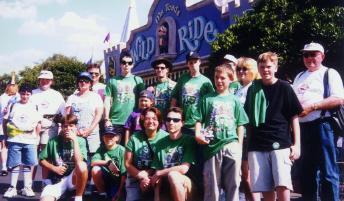
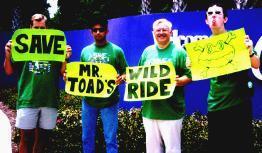
Concerned fans started a “Save the Toad” website. Members of the Save the Toad campaign would gather at the attraction for regular “Toad-Ins.” Fans created and distributed shirts, posters, and other items in order to spread the word. People from around the country – and even around the world – gathered outside Toad Hall in Magic Kingdom, voicing their concerns. The protests were peaceful overall, but the number of concerned Toadies was enough to cause Disney to position a security guard at the attraction until it closed on September 7, 1998.
In an effort to avoid prolonging the madness, Disney issued a final notice of Toad’s closure only six days before the intended closure, stating the attraction would be closing on September 8th. Then they went ahead and closed Toad for good a day early, on September 7th, thereby avoiding any potentially ugly final day fan protests. Well played, Disney.
Out With the Toad, In With the Pooh
The Many Adventures of Winnie the Pooh opened in Mr. Toad’s former location on June 4, 1999 – about a year and a half after Toad took his final ride. Pooh is more of a typical dark ride, and doesn’t have the madcap antics that made Mr. Toad so unique.
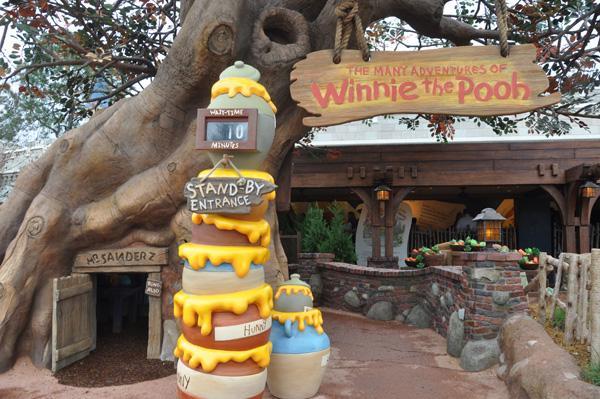
Still, Pooh continues to be a fan favorite attraction in Fantasyland to this day. Pooh doesn’t use the two vehicle tracks like Mr. Toad did, opting instead to use the extra space for a combination of a larger attraction and a Pooh-themed gift shop.
Gone But Not Forgotten
Mr. Toad’s Wild Ride may be gone from Magic Kingdom, but guests can still find hints of Toad’s memory around the park.
In the portion of the Pooh ride where guests pass through Owl’s house, sharp-eyed guests can see several framed images showing Mr. Toad and his friends with several folks from the Hundred Acre Wood. One of the images shows Mr. Toad handing over the deed for Toad Hall to Owl, symbolically representing the changing of the attraction.

Over in Liberty Square, the Haunted Mansion’s pet cemetery displays a small statue of Mr.Toad. In a graveyard famous for its witty epitaphs, a (likely fictional) memoriam has been attributed to Toad’s honor.
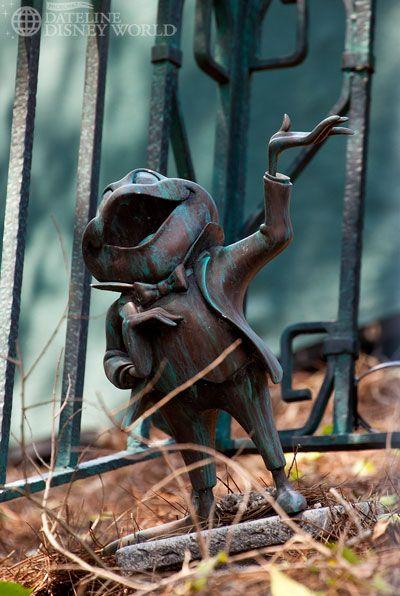
“Here Lies Toad, it’s sad but true. Not nearly as marketable as Winnie the Pooh.”
Facing Forward
A similar version of Pooh opened in Disneyland in 2003, having replaced another long-missed attraction – The Country Bear Jamboree. With two iconic Disney park attractions seeing their ends at the paws of a golden stuffed bear, the surge of Winnie-the-Pooh is a good demonstration of opportunity and marketing in the entertainment industry.
For now, both Toad and the Country Bears still have their cross-country counterparts to carry on their legacies. But as Walt Disney famously said: “Disneyland will never be completed. It will continue to grow as long as there is imagination left in the world.” The story of Mr. Toad (and the Country Bears) is testament to Walt’s philosophy, which has been carried on by Walt Disney Imagineering in the form of the slogan “Disneyland is not a museum.”
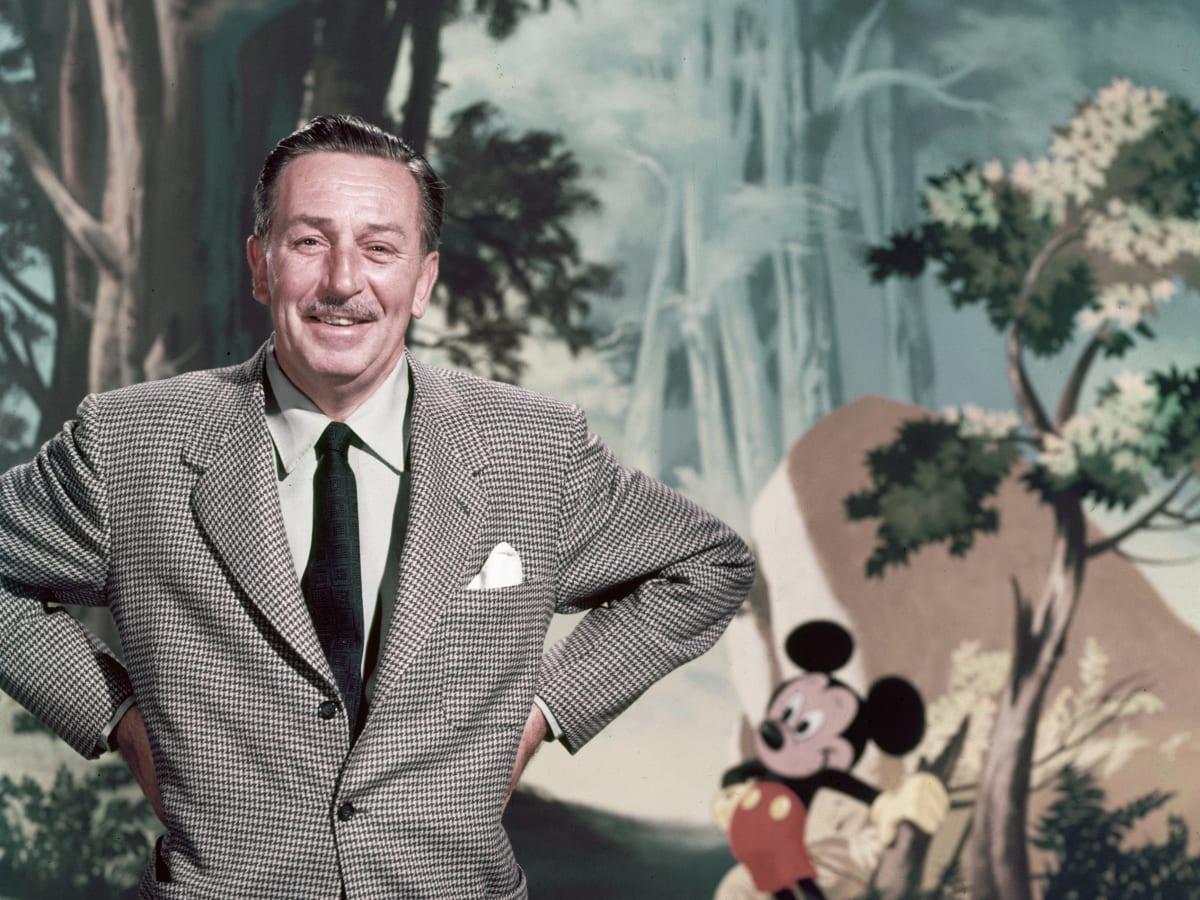
Will Mr. Toad continue to take his ride to “Nowhere in Particular” in Disneyland? Or will he be pressed into handing over the keys of his California manor to the next big sensation? Only time will tell Toad’s future, so enjoy him in Disneyland while you can!
Thanks for riding, and please follow along here for additional articles in this series. We’ll continue to explore many other former attractions and experiences from Walt Disney World, including Magic Kingdom, Epcot, Hollywood Studios, and Animal Kingdom.
If you enjoyed this article, please feel free to share it with friends.
Feel free to reach out with a comment here or on social: Instagram Facebook X
